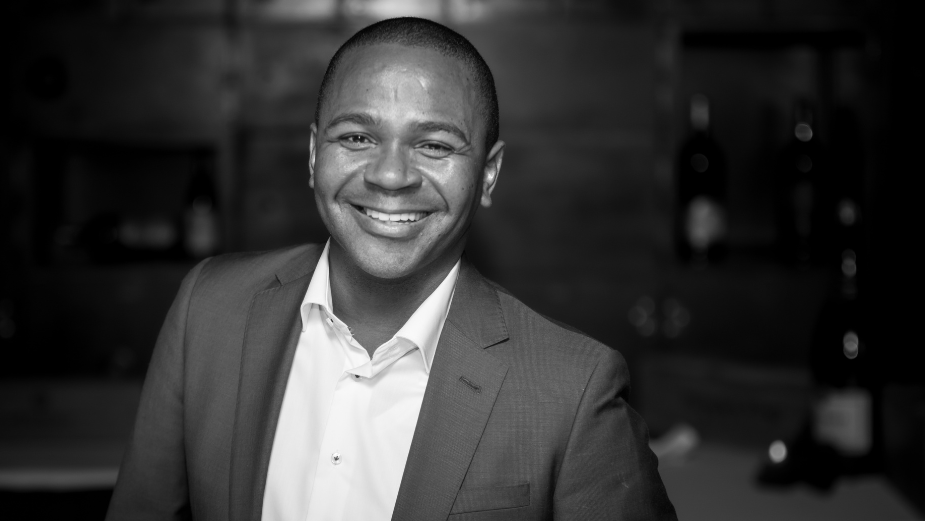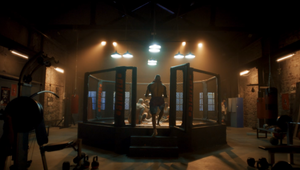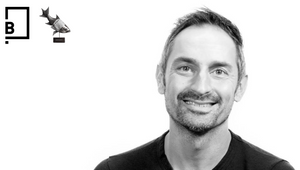
Bossing It: Creating a Sense of Belonging for Team Members with Wayne Hempe

Wayne Hempe is chief financial officer at TBWA\Chiat\Day Los Angeles. Wayne has extensive client finance experience, having spent six years on our global automotive account and eight years as agency finance lead in South Africa and Amsterdam. As an active member of various agency ERGs, fostering an inclusive place of belonging for employees is high on Wayne’s list of priorities. He also served as treasurer on Omnicom’s Open Pride ERG, New York chapter, and supports various foundation stage literacy projects in underserved communities.
LBB> What was your first experience of leadership?
Wayne> I joined the TBWA Collective as group financial manager in South Africa in 2007 where I was responsible for the full-service finance responsibilities overseeing a team of 10 people. This was my first experience in a leadership role, after several years in audit and financial controller roles, and I very quickly realised being a good leader is not just about having great technical knowledge – really taking the time to listen and understand what each team members’ individual needs are is more important.
LBB> How did you figure out what kind of leader you wanted to be – or what kind of leader you didn’t want to be?
Wayne> I always wanted to feel seen at work mainly because we spend so much time in the office and that has always been one of my main goals as a leader, especially with my team… to create a sense of belonging so every team member feels seen and that their voice is heard. I always encourage my team to ask any question, especially work related, they may have on their mind and to not sit with something that bothers them - but I also add they should be prepared for an honest and direct answer.
LBB> What experience or moment gave you your biggest lesson in leadership?
Wayne> Years ago, pursuing a criminal case due to a fraud related incident taught me that everyone doesn't necessarily have the same level of commitment and honesty in the workplace. I realised early on that the team looks to me to set the tone for how we show up in the agency. In my role, implementing strong financial controls and ensuring it’s followed by all is key to our success.
LBB> Did you know you always wanted to take on a leadership role? If so how did you work towards it and if not, when did you start realising that you had it in you?
Wayne> I knew my career path included taking on leadership roles where I could share my technical knowledge and also help to grow and inspire our future leaders. I always surrounded myself with other leaders who I could learn from and talk to about my leadership journey and challenges. I had two mentors who I checked in with regularly and never stopped seeking learning and development opportunities through work training programmes and continuing professional education.
LBB> When it comes to 'leadership' as a skill, how much do you think is a natural part of personality, how much can be taught and learned?
Wayne> One of the major strengths of a good leader is the ability to inspire people, which I believe should come naturally, coupled with empathy, which is also not taught. There are invaluable life lessons and skills that we all learn along our career, but a good leader adds these to their toolkit to make it a natural part of their leadership style. If I had to hazard a guess, I would say leadership is 70% natural and 30% learned.
LBB> What are the aspects of leadership that you find most personally challenging? And how do you work through them?
Wayne> When I experience a challenging situation, I prefer to sit with it by myself for a few hours - try to relate it to similar situations I’ve either been involved in or heard of. If I cannot figure it out, I have two personal friends and a mentor I like to discuss issues with who always give me direct feedback no matter how uncomfortable it may be for me personally.
LBB> Have you ever felt like you've failed whilst in charge? How did you address the issue and what did you learn from it?
Wayne> I have failed a number of times in my leadership role. I’ve learnt that being vulnerable and honest in those moments helps with building trust and most times allows people to give you another chance.
LBB> In terms of leadership and openness, what’s your approach there? Do you think it’s important to be as transparent as possible in the service of being authentic? Or is there a value in being careful and considered?
Wayne> I believe transparency is required to build trust with people and this goes both ways in the relationship. I am fairly open at work with peers and my team members. But as CFO, confidentiality and a duty of care is a key requirement for success, so it’s a delicate balance especially for a natural communicator like me.
LBB> As you developed your leadership skills did you have a mentor, if so who were/are they and what have you learned? And on the flip side, do you mentor any aspiring leaders and how do you approach that relationship?
Wayne> I’ve had two mentors in my career, one was the CEO of an agency I worked for (Ivan Moroke) and the second was an advertising industry veteran who served as both a coach and mentor. Ivan and I always brought the values of TRUTH & COURAGE to the centre in any issue or work-related matter I was dealing with. As a leader, always aim to be courageous and stand firm in your decision-making and be truthful in your communication.
I love and value mentoring young people because I’ve always benefited from the help of others, whether in the workplace or in my personal life. I strongly believe in paying it forward. I currently mentor a young professional in our strategy department and love that our relationship and discussions are rooted in our shared background and life experiences rather than only technical work matters. My approach to the relationship has always been one of honest communication and doing regular check-ins to see if we are both benefiting and growing together.
LBB> It's been a really challenging year - and that's an understatement. How do you cope with the responsibility of leading a team through such difficult waters?
Wayne> I’ve learnt to show up with openness and curiosity and not pretend that I have all the answers. Coming out of two challenging years, figuring out what our “new normal” is will take time and patience on everyone's part. We are still trying to figure out the correct return to office policy, how to build and maintain team culture, what’s the right mix of in-person vs online meetings etc. I practise truthful, courageous, and honest communication and ask for feedback constantly. As a team, we’ve also committed to trying something out before knocking it.
LBB> This year has seen the industry confronted with its lack of action/progress on diversity and inclusion. As a leader how have you dealt with this?
Wayne> As a Black, gay, foreign national in my late forties, diversity, equity and inclusion is very important and top of mind for me every single day. I start by making sure that my immediate team and other parts of the business that I directly impact are representative of the community we work in. I want to ensure that my team feels a sense of belonging, not only in the finance department, but also in the broader agency - and to that end, we make sure we celebrate all our different interests and cultures in the team through open dialogues. Intersectionality is important to me, and I want to make sure that, just like I do, they all feel they can show up as their full selves to work every day and feel seen. I am also actively involved in two of our Employee Resource Groups and where possible, make myself visible through speaking on panels or participating in other agency cultural programming. Lastly, as CFO, I also ask critical questions on hiring, production budgets and other agency expenditure, not just from a budget perspective but whether we have considered diverse candidates or vendors in our selection process.
LBB> How important is your company culture to the success of your business? And how have you managed to keep it alive with staff working remotely or hybrid in 2022?
Wayne> A healthy culture that everyone feels they are part of and can help shape is extremely important to our creative industry. With the high employee turnover most of us struggled with during the last two years, we constantly had to reassess the type of cultural programming we rolled out to keep both longer term and new employees engaged. Where possible, we try to host in-person events on the days when we are all in the office to encourage people to spend time together away from technology. Regular, short surveys or informal check-ins also help to gauge what teams want more of where we should pull back because we also run the risk of overstimulation if there are too many activities and experiences happening in a short space of time.
LBB> What are the most useful resources you’ve found to help you along your leadership journey?
Wayne> Good mentors and trusted friends and family whose council you value and trust are my best resources. Harvard Business Review, Wall Street Journal and a few other business publications regularly publish inspirational articles on leadership.















